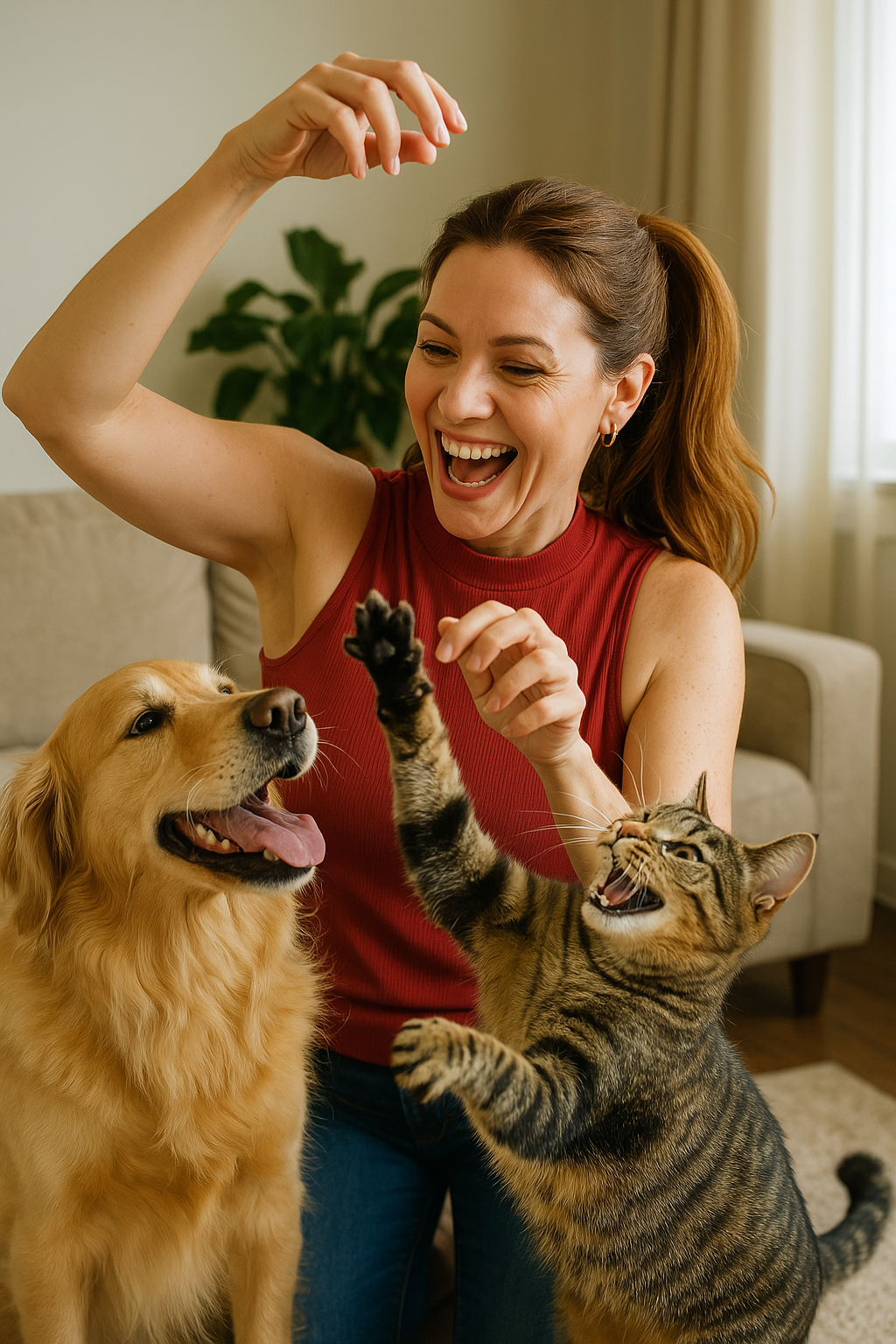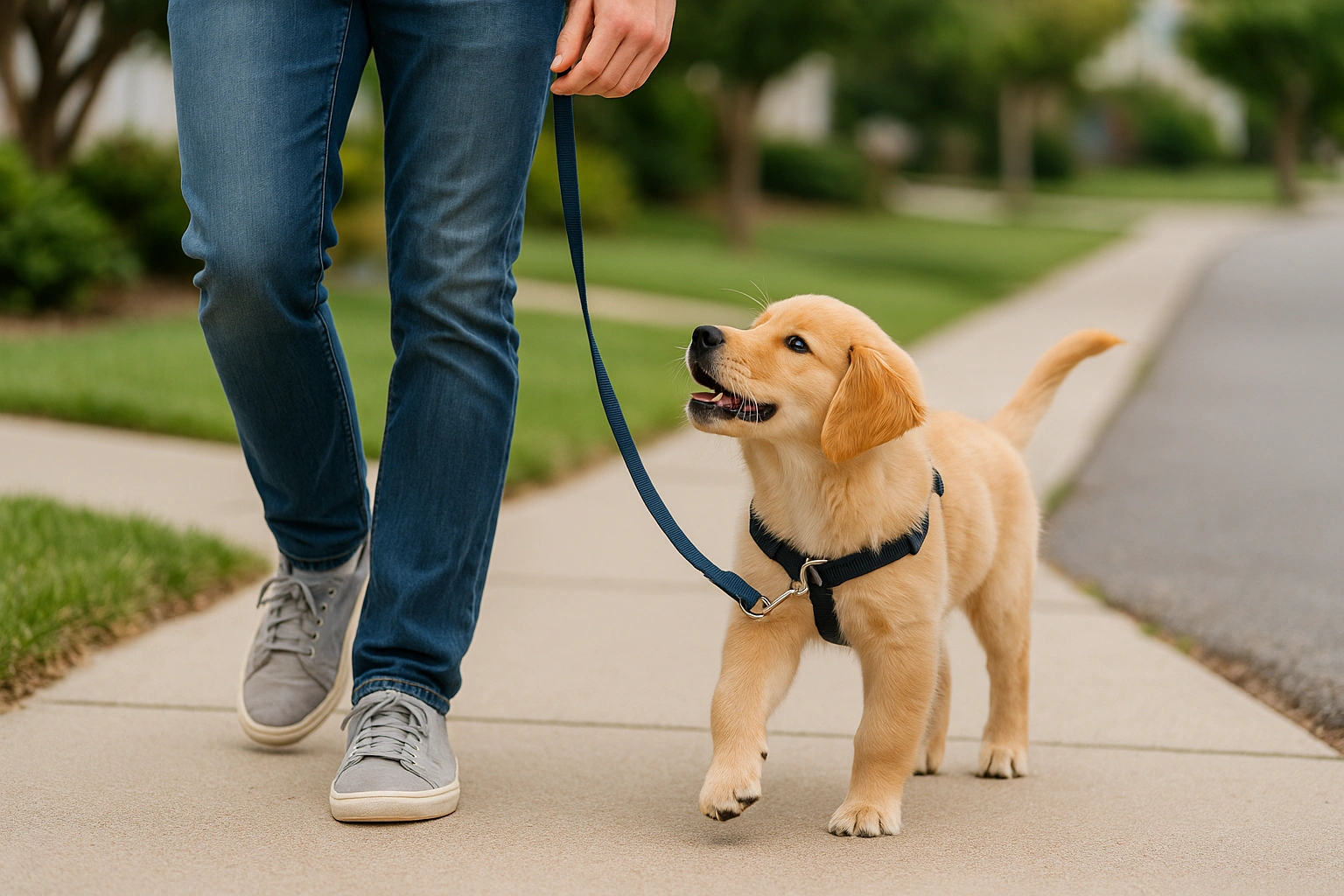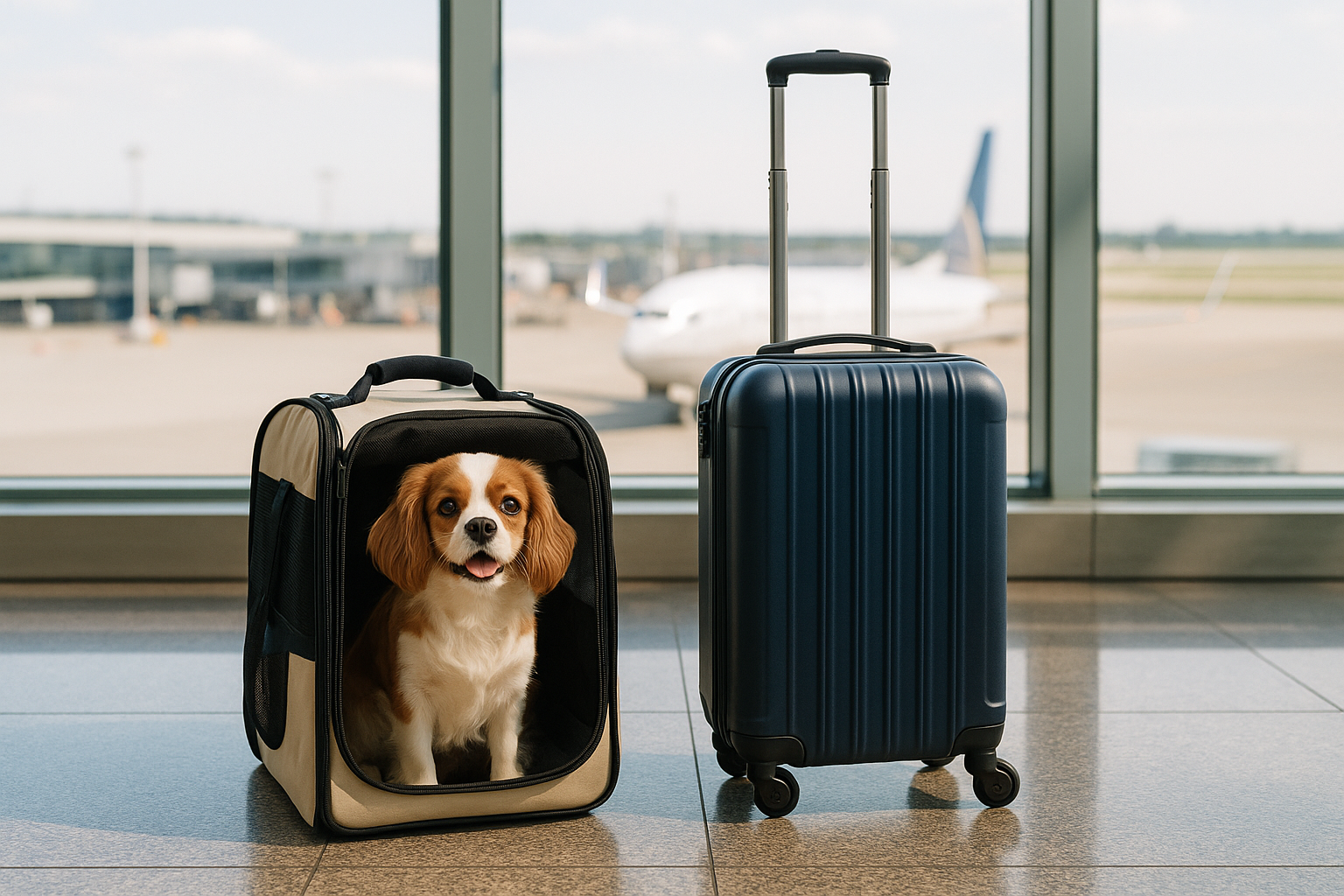Why Vaccinations Are Essential for Pets
Understanding the Importance of Vaccinations
Vaccinations are one of the most effective ways to protect your pet from serious and potentially life-threatening diseases. Just like humans, pets are exposed to various viruses and bacteria that can harm their health. Vaccines work by preparing your pet’s immune system to fight off these invaders, ensuring they stay healthy and happy. By vaccinating your pet, you’re not just safeguarding their well-being—you’re also contributing to the overall health of the pet community. To ensure your furry friend receives timely protection, it’s important to follow a recommended Pet Vaccination Schedule.
How Vaccines Protect Pets and Humans
Vaccines don’t just protect your furry friend—they also play a crucial role in keeping humans safe. Some diseases, like rabies, can be transmitted from animals to people, posing a significant public health risk. By vaccinating your pet, you’re helping to prevent the spread of these zoonotic diseases. It’s a simple step that makes a big difference for both your pet and your family.
Common Misconceptions About Pet Vaccinations
There are several myths surrounding pet vaccinations that can lead to confusion. Let’s clear up a few of the most common ones:
- “Indoor pets don’t need vaccines.” Even if your pet stays indoors, they can still be exposed to diseases through contact with other animals, contaminated objects, or even you.
- “Vaccines are dangerous.” While no medical procedure is entirely risk-free, the benefits of vaccinations far outweigh the minimal risks. Serious side effects are rare.
- “My pet is too old for vaccines.” Age isn’t a barrier to vaccination. In fact, older pets may need vaccines even more to maintain their immunity.
Understanding the facts about vaccinations can help you make informed decisions for your pet’s health.
Core Vaccines Every Pet Needs
Essential Vaccines for Dogs
When it comes to keeping your furry friend healthy, core vaccines are non-negotiable. For dogs, these include:
- Rabies – A legal requirement in most places, rabies is fatal to both dogs and humans.
- Distemper – A serious illness affecting the respiratory, gastrointestinal, and nervous systems.
- Parvovirus – Highly contagious and often fatal, especially in puppies.
- Adenovirus (Canine Hepatitis) – Causes liver damage and other complications.
These vaccines are considered essential because they protect against life-threatening diseases that are widespread or highly contagious.
Essential Vaccines for Cats
Cats also have their own set of core vaccines to keep them safe:
- Rabies – Just like with dogs, this is often required by law.
- Feline Panleukopenia (Distemper) – A severe and often fatal disease.
- Feline Herpesvirus (Rhinotracheitis) – Causes upper respiratory infections.
- Feline Calicivirus – Another major cause of respiratory infections in cats.
These vaccines are the foundation of your cat’s health, shielding them from diseases that can be devastating.
The Role of Lifestyle in Determining Vaccines
While core vaccines are essential for all pets, their lifestyle can influence whether they need additional protection. For example:
- Outdoor Pets – If your dog or cat spends time outdoors, they may need vaccines for Lyme disease (dogs) or feline leukemia (cats).
- Boarding or Grooming – Pets that interact with other animals in these settings may benefit from vaccines like Bordetella (kennel cough) for dogs.
- Travel – If you’re planning to travel with your pet, consult your vet about region-specific vaccines.
Your veterinarian can help tailor a vaccination plan that suits your pet’s unique needs and lifestyle.
Puppy and Kitten Vaccination Schedule
First-Year Vaccination Timeline
Bringing home a new puppy or kitten is an exciting time, and ensuring they start life on the right foot includes following a proper vaccination schedule. Vaccines are essential to protect your furry friend from serious diseases and help them build a strong immune system.
- 6-8 Weeks: First round of core vaccines (e.g., distemper, parvovirus for puppies; feline panleukopenia, rhinotracheitis for kittens).
- 10-12 Weeks: Second round of core vaccines, plus non-core vaccines based on your pet’s lifestyle (e.g., bordetella for puppies or feline leukemia for outdoor kittens).
- 14-16 Weeks: Final round of core vaccines, including rabies (required by law in most areas).
Your veterinarian will tailor the schedule to your pet’s specific needs, so don’t hesitate to ask questions during your visits.
Booster Shots and Follow-Ups
After the initial vaccination series, your pet will need booster shots to maintain immunity. These are typically given annually or every three years, depending on the vaccine and your vet’s recommendations.
- Rabies: Usually required by law and given every 1-3 years.
- Core Vaccines: Boosters for distemper, parvovirus, or feline panleukopenia are often given every 1-3 years.
- Non-Core Vaccines: Boosters for vaccines like bordetella or feline leukemia depend on your pet’s exposure risk.
Regular check-ups are also a great opportunity to discuss any concerns or changes in your pet’s health.
What to Expect During Vet Visits
Vet visits can feel overwhelming, especially for new pet parents, but they’re a chance to ensure your furry companion is healthy and thriving. Here’s what typically happens:
- Physical Exam: The vet will check your pet’s weight, temperature, heart, lungs, and overall condition.
- Vaccinations: Administered based on your pet’s age and vaccine history.
- Discussion: This is your time to ask questions about diet, behavior, or any concerns you have.
Remember, your vet is there to help. If you’re nervous, let them know—they’ll make the experience as smooth as possible for both you and your pet.
Adult and Senior Pet Vaccination Guidelines
Maintaining Immunity in Adult Pets
As your pet grows into adulthood, maintaining their immunity becomes just as important as when they were puppies or kittens. Core vaccines, such as those for rabies, distemper, and parvovirus (for dogs), or feline herpesvirus and calicivirus (for cats), should be kept up-to-date. While the frequency of vaccinations may decrease compared to their younger years, it’s essential to follow your vet’s recommended schedule to ensure your furry friend stays protected. Regular boosters are key to keeping their immune system strong against common diseases.
Special Considerations for Senior Pets
As pets enter their golden years, their needs change—and so should their vaccination plan. Older pets may have a slower immune response, making them more susceptible to illnesses. However, over-vaccination can also pose risks. Your vet might suggest titer testing to measure immunity levels and determine if a booster is necessary. Additionally, vaccines for less common illnesses, often referred to as non-core vaccines, may be tailored based on your senior pet’s lifestyle and health conditions. Always discuss any changes in their routine or environment with your vet to ensure their vaccination plan is appropriate.
How Often to Revisit the Vet
For adult pets, annual check-ups are typically recommended, but as they age, bi-annual visits may become necessary. These visits are an excellent opportunity for your vet to assess your pet’s overall health and adjust their vaccination schedule if needed. Keep in mind that regular vet visits aren’t just about vaccinations—they’re also a chance to catch potential health issues early. If you notice any changes in your pet’s behavior, appetite, or energy levels, don’t hesitate to schedule an appointment. Your vigilance can make all the difference in keeping your pet healthy and happy for years to come.
Managing Vaccination Costs
Keeping your pet healthy is a top priority, but it’s no secret that veterinary care—including vaccinations—can add up. The good news? With a little planning and some smart strategies, you can manage these costs without compromising your pet’s well-being. Let’s dive into some practical tips to help you budget for pet health, explore pet insurance, and find low-cost vaccination options.
Budgeting for Pet Health
Creating a pet health budget is a great way to stay on top of expenses and ensure you’re prepared for routine and unexpected costs. Here’s how to get started:
- Set aside a monthly amount: Treat your pet’s health like a recurring bill. Even a small amount each month can add up over time.
- Prioritize preventive care: Regular check-ups and vaccinations can help avoid costly treatments down the road.
- Track expenses: Use a spreadsheet or an app to monitor your spending on pet care. This will help you adjust your budget as needed.

Pet Insurance and Vaccination Coverage
Pet insurance can be a lifesaver when it comes to managing veterinary costs, but it’s important to understand what’s covered. Here’s what to consider:
- Research plans: Not all pet insurance policies cover vaccinations, so be sure to read the fine print.
- Compare premiums and deductibles: Look for a plan that fits your budget while providing the coverage your pet needs.
- Check for wellness add-ons: Some insurers offer wellness plans that cover routine care, including vaccinations.
While pet insurance requires an upfront investment, it can save you money in the long run, especially if your pet needs unexpected medical care.
Low-Cost Vaccination Options
If you’re looking for affordable vaccination options, there are several resources to explore:
- Local animal shelters: Many shelters offer low-cost vaccination clinics as part of their community outreach programs.
- Veterinary schools: Teaching hospitals often provide discounted services, including vaccinations.
- Pet wellness events: Keep an eye out for community events that offer free or low-cost vaccinations.
- Discount programs: Some veterinary practices and pet stores have loyalty programs or discounts for bundled services.
Remember, low-cost doesn’t mean low-quality. These options are often supported by professionals who are passionate about animal health.
Common Side Effects and What to Do
Recognizing Mild vs. Severe Reactions
It’s completely normal for your pet to experience some mild side effects after vaccination. These can include tiredness, a slight swelling at the injection site, or a mild fever. These symptoms usually resolve on their own within a day or two. However, severe reactions—like difficulty breathing, vomiting, or excessive swelling—are rare but require immediate attention. Knowing the difference helps you act quickly if something doesn’t seem right.
How to Comfort Your Pet After Vaccination
After your pet’s vaccination, they might feel a little under the weather. Here’s how you can help:
- Provide a quiet, cozy space for them to rest.
- Offer plenty of fresh water to keep them hydrated.
- Give them extra cuddles and reassurance—your presence can be a big comfort.
- Avoid vigorous activity or play for a day or two to let them recover.
When to Contact Your Vet
While most side effects are mild, it’s important to know when to seek professional help. Contact your vet if your pet shows any of the following:
- Persistent vomiting or diarrhea
- Difficulty breathing or excessive coughing
- Swelling around the face, eyes, or throat
- Lethargy that lasts more than 24 hours
- Any behavior that seems unusual or concerning
When in doubt, it’s always better to err on the side of caution and reach out to your vet. They’re there to help ensure your pet stays happy and healthy!
Tips for Staying on Track with Vaccinations
Setting Reminders and Schedules
Keeping up with your pet’s vaccination schedule can feel overwhelming, but it doesn’t have to be. One of the simplest and most effective ways to stay on track is by setting reminders. Use tools like phone alarms, calendar alerts, or even dedicated pet care apps to notify you when it’s time for the next round of shots. Write down the vaccination schedule provided by your vet and keep it somewhere visible, like on the fridge or a bulletin board. Consistency is key, and these small steps can make a big difference in ensuring your pet stays protected.
Building a Relationship with Your Vet
Your veterinarian is your partner in your pet’s health journey. Building a strong relationship with them can make managing vaccinations much easier. Don’t hesitate to ask questions or voice concerns during visits—your vet is there to help. Establishing a rapport also means your vet will be more familiar with your pet’s health history, making it easier to tailor vaccination schedules and spot any potential issues early. Regular check-ups not only keep vaccinations on track but also provide an opportunity to discuss overall health and wellness.
Keeping Organized Records
Staying organized is crucial when it comes to your pet’s vaccination records. Create a dedicated folder—whether physical or digital—to store all vaccination documents, receipts, and vet visit summaries. Many vets also offer online portals where you can access your pet’s medical history at any time.
Pro tip: Keep a small card in your wallet or a note on your phone with your pet’s vaccination dates and types. This way, you’ll always have the information handy, especially during emergencies or while traveling. Consider digital tools like PetDesk.
FAQs About Pet Vaccinations
What if I miss a vaccination date?
Don’t panic! Contact your vet as soon as possible to reschedule. They’ll advise you on the next steps to ensure your pet remains protected.
How often does my pet need vaccinations?
It varies depending on the type of vaccine and your pet’s age, health, and lifestyle. Your vet will create a personalized schedule.
Can I vaccinate my pet at home?
Some vaccines can be administered at home, but it’s always best to consult your vet first. Professional administration ensures safety and effectiveness.
By staying proactive and organized, you’ll not only keep your pet healthy but also give yourself peace of mind. Vaccinations are a vital part of pet care, and with these tips, you’ll have no trouble staying on track with your Pet Vaccination Schedule!
Related articles
🔗4 Essential Types of Pet Insurance: Pros and Cons 🐾
🔗🐾 10 Common Pet Illnesses and How to Spot Them Early

Passionate about animals and an expert in pet behavior, I created Pawfect Life to help you better understand and care for your companion—whether they have fur, scales, or feathers. Here, I share practical tips and reliable information to ensure a happier, healthier life for your pet. Let’s embark on this journey together! 🐾✨





